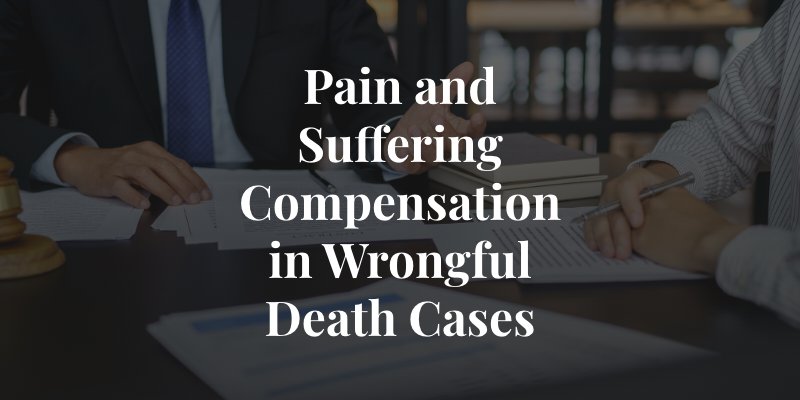The loss of a loved one in an unexpected accident can cause immense pain and suffering to you as a grieving family member. In California, you may have the right to seek financial compensation for these losses, in addition to your deceased loved one’s pain and suffering prior to death. An Orange County wrongful death attorney can help your family pursue fair compensation for your tragic loss.

What Is Pain and Suffering in a Wrongful Death Case?
“Pain and suffering” is a collective term used in personal injury law to describe various intangible or non-economic damages suffered by the plaintiff, or the filing party. They are also referred to as general damages in contrast to specific, measurable financial damages. Pain and suffering in a personal injury claim can encompass the victim’s:
- Physical pain (acute or chronic)
- Emotional distress or suffering
- Mental anguish
- Post-traumatic stress disorder (PTSD)
- Depression or anxiety
- Disability or disfigurement
- Loss of enjoyment of life
- Reduced quality of life
In a wrongful death claim, it would seem that pain and suffering refers to the pain of losing a loved one, such as the surviving family members’ grief, sorrow and mental anguish. However, these specific emotions are not considered part of a non-economic damage calculation. Instead, family members are compensated for “loss of consortium.”
What Is Loss of Consortium?
Loss of consortium damages are a family’s opportunity to recover compensation for the negative impact a wrongful death has had. Loss of consortium addresses the loss of intangible benefits associated with having the decedent around, such as the loss of the person’s love, companionship, care, affection and comfort. For a spouse, loss of consortium can also include the loss of a sexual or romantic relationship with the decedent. For a surviving child, it can refer to the loss of a parent’s guidance, advice and affection. The purpose of this type of damage award is to compensate for the emotional harm caused to the family unit by the sudden loss.
Your Pain and Suffering vs. the Decedent’s
In the past, California law did not allow for the recovery of damages for a deceased person’s pain and suffering. However, in 2021, Senate Bill 447 temporarily changed this rule. In certain cases filed between January 1, 2022 and January 1, 2026, family members can seek damages for the decedent’s pain and suffering if the decedent’s personal injury case was not resolved while they were alive due to judicial delays caused by the COVID-19 pandemic.
Survival Actions
Under California Code of Civil Procedure § 377.30, a “survival action” can be filed after the wrongful death of an individual to seek compensation specifically for the decedent’s losses that were incurred prior to death but after the defendant’s negligent act. This can include the deceased person’s medical expenses, lost wages, property damage, and pain and suffering. Any compensation awarded for the decedent’s losses will be given to the person’s estate. From there, it can be distributed among surviving beneficiaries according to California’s laws of intestate succession. In California, the decedent’s surviving spouse, child, grandchild or other dependents can file a wrongful death claim. However, a survival action must be brought by the decedent’s personal representative. To discuss your individual case and the possibility of collecting pain and suffering damages for the wrongful death of your loved one, contact Bridgford, Gleason & Artinian for a free consultation with an attorney.
